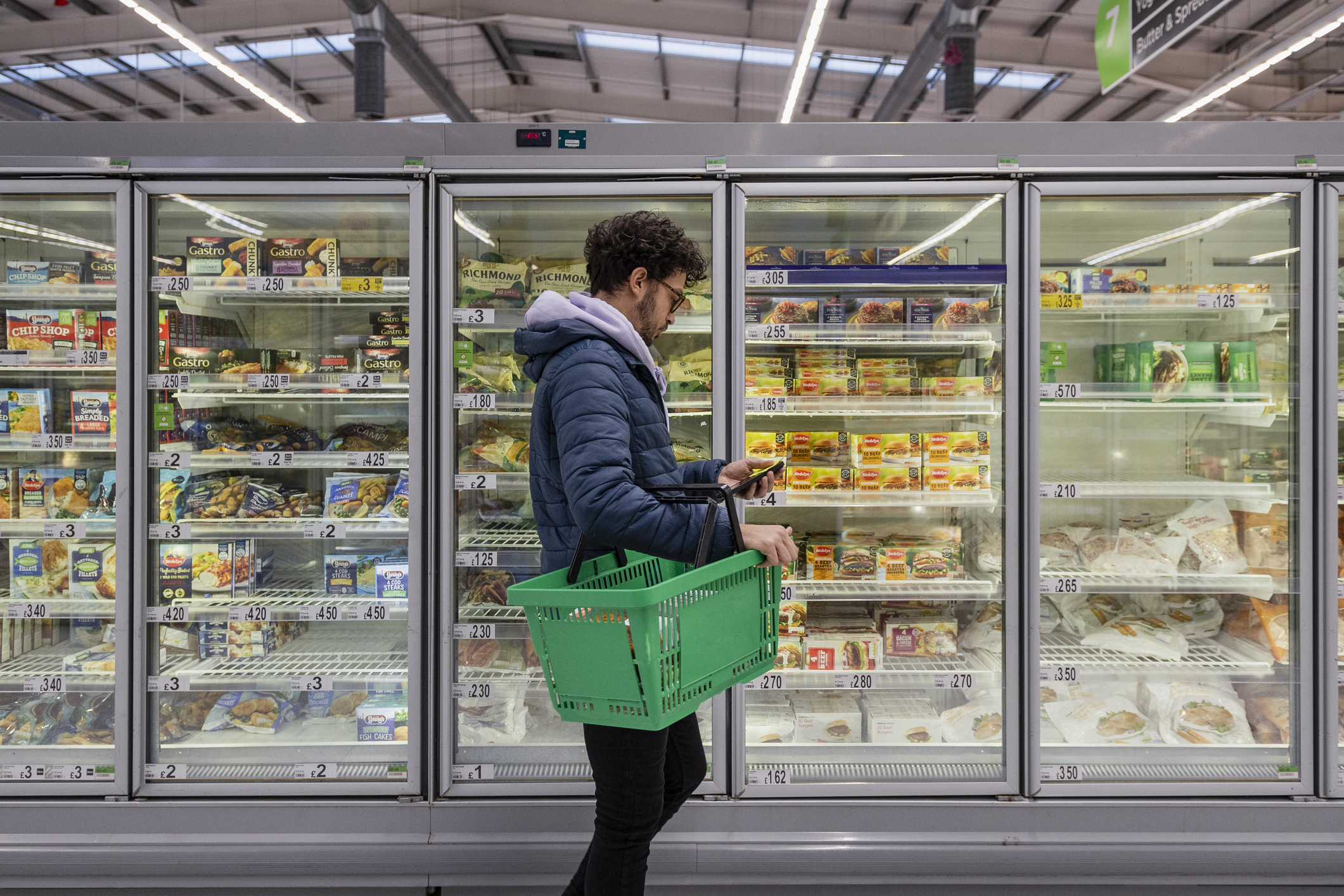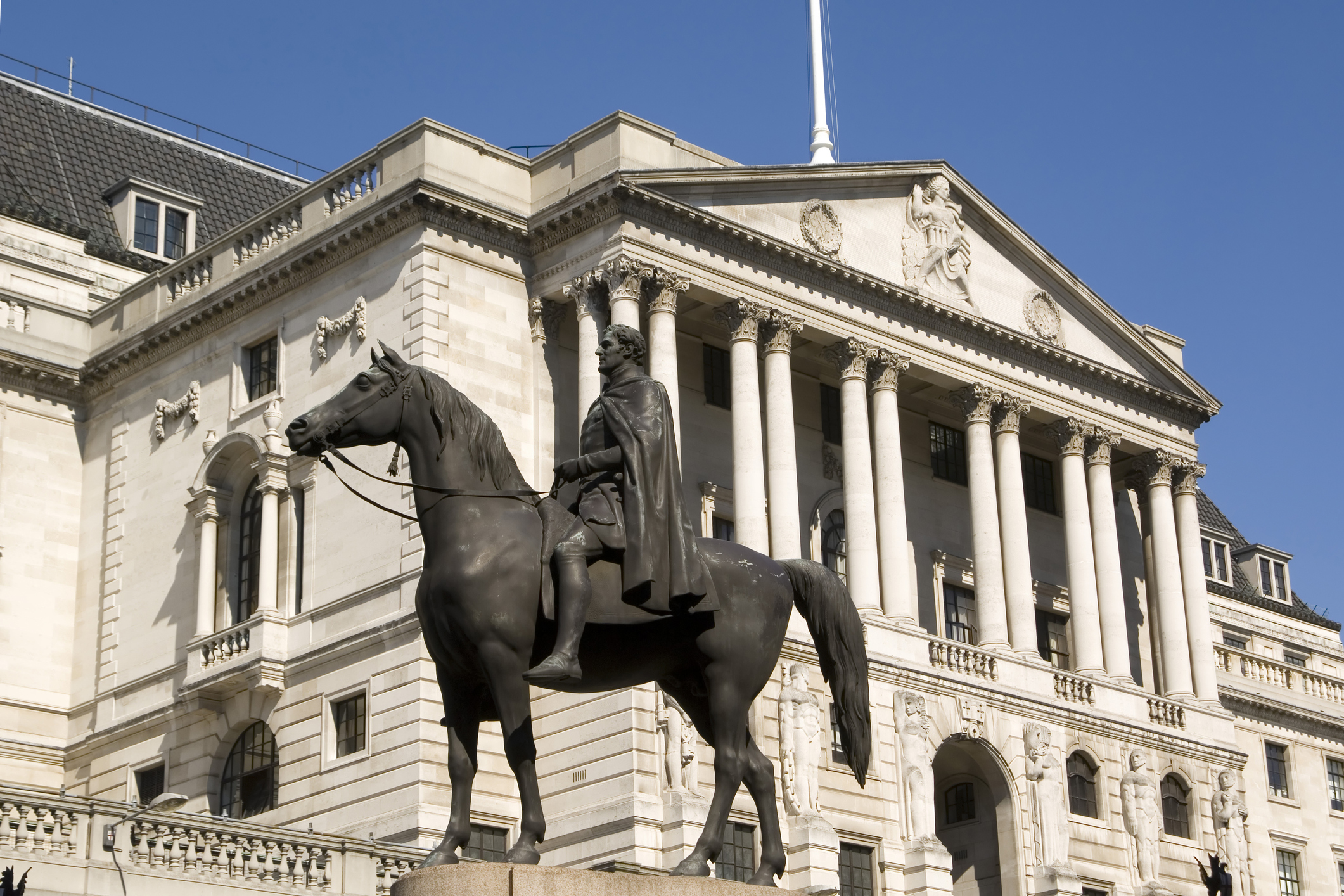UK economy returns to growth but rate hike worries remain
Strong consumer spending and a growing UK economy could drive the Bank of England to increase interest rates yet again


Get the latest financial news, insights and expert analysis from our award-winning MoneyWeek team, to help you understand what really matters when it comes to your finances.
You are now subscribed
Your newsletter sign-up was successful
Want to add more newsletters?

Twice daily
MoneyWeek
Get the latest financial news, insights and expert analysis from our award-winning MoneyWeek team, to help you understand what really matters when it comes to your finances.

Four times a week
Look After My Bills
Sign up to our free money-saving newsletter, filled with the latest news and expert advice to help you find the best tips and deals for managing your bills. Start saving today!
The UK economy bounced back in April after it was boosted by stronger spending by Britons in pubs, bars and shops, but growth in consumer spending could encourage the Bank of England to hike interest rates further.
UK gross domestic product (GDP) increased by 0.2% for the month after a 0.3% fall in March, the Office for National Statistics (ONS) revealed.
The latest figure was in line with forecasts for the month from economists.
MoneyWeek
Subscribe to MoneyWeek today and get your first six magazine issues absolutely FREE

Sign up to Money Morning
Don't miss the latest investment and personal finances news, market analysis, plus money-saving tips with our free twice-daily newsletter
Don't miss the latest investment and personal finances news, market analysis, plus money-saving tips with our free twice-daily newsletter
The rise for April was partly caused by a recovery in consumer-facing services, which grew 1% for the month, as Britons spent more on drinking and eating out.
Economists suggested on Wednesday that the continued growth in consumer spending could indicate that recent interest rate hikes have not yet dampened demand and could increase appetite for further rate hikes.
It comes a day after official figures also showed that average regular wages, not including bonuses, jumped 7.2% higher in the three months to April, up from 6.8% in the three months to March.
UK economy stats point to future rate rise
The higher-than-expected wage rise stoked further suggestions that the Bank of England’s monetary policy committee will increase interest rates again next week in an effort to grapple inflation.
The central bank has been aggressively hiking interest rates for over a year now as it tries to get inflation back to its target of 2% – a task that has had to contend with record food prices and high energy costs.
The latest GDP figures will be mulled by the bank’s Monetary Policy Committee on 22 June.
ONS director of economic statistics Darren Morgan said: “GDP bounced back after a weak March.
“Bars and pubs had a comparatively strong April, while car sales rebounded and education partially recovered from the effect of the previous month’s strikes.”
The statistics body said the overall services industry grew by 0.3% for the month, as it recovered from a 0.5% decline in March.
However, some of the positive impact of improved hospitality and retail spending was offset by industrial action affecting other sectors, such as healthcare.
Morgan added: “These were partially offset by falls in health, which was affected by the junior doctors strikes, along with falls in computer manufacturing and the often-erratic pharmaceuticals industry.
“House-builders and estate agents also had a poor month.”
What next for the UK economy?
The weak performance from house-builders and estate agents comes amid a backdrop of surging interest rates, which have lifted to a 14-year-high of 4.5% and are expected to keep rising.
Chancellor Jeremy Hunt said: “We are growing the economy, with the IMF (International Monetary Fund) saying that from 2025 we will grow faster than Germany, France and Italy.
“But high growth needs low inflation, so we must stick relentlessly to our plan to halve the rate this year to protect family budgets.”
Labour’s shadow chancellor Rachel Reeves said: “Despite our country’s huge potential and promise, today is another day in the dismal low-growth record book of this Conservative Government.
“The facts remain that families are feeling worse off, facing a soaring Tory mortgage penalty and we’re lagging behind on the global stage.”
Kitty Ussher, chief economist at the Institute of Directors, said: “April’s GDP data shows a recovery in consumer-facing services compared to March, with growth recorded in retail and wholesale trade, accommodation, food and beverage services, and transport.
“This suggests that households responded to the improving weather in April by raising their levels of discretionary spending – even in the face of rising costs.
“Businesses in the consumer-facing sectors will be encouraged by today’s data.
“However, the Bank of England may interpret it as proof that their interest rate hikes have not yet dampened demand enough to reduce inflationary pressure, particularly when combined with yesterday’s strong labour market performance.”
Additional reporting via PA
Get the latest financial news, insights and expert analysis from our award-winning MoneyWeek team, to help you understand what really matters when it comes to your finances.
Tom is a journalist and writer with an interest in sustainability, economic policy and pensions, looking into how personal finances can be used to make a positive impact.
He graduated from Goldsmiths, University of London, with a BA in journalism before moving to a financial content agency.
His work has appeared in titles Investment Week and Money Marketing, as well as social media copy for Reuters and Bloomberg in addition to corporate content for financial giants including Mercer, State Street Global Advisors and the PLSA. He has also written for the Financial Times Group.
When not working out of the Future’s Cardiff office, Tom can be found exploring the hills and coasts of South Wales but is sometimes east of the border supporting Bristol Rovers.
-
 Should you buy an active ETF?
Should you buy an active ETF?ETFs are often mischaracterised as passive products, but they can be a convenient way to add active management to your portfolio
-
 Power up your pension before 5 April – easy ways to save before the tax year end
Power up your pension before 5 April – easy ways to save before the tax year endWith the end of the tax year looming, pension savers currently have a window to review and maximise what’s going into their retirement funds – we look at how
-
 How have central banks evolved in the last century – and are they still fit for purpose?
How have central banks evolved in the last century – and are they still fit for purpose?The rise to power and dominance of the central banks has been a key theme in MoneyWeek in its 25 years. Has their rule been benign?
-
 'Governments are launching an assault on the independence of central banks'
'Governments are launching an assault on the independence of central banks'Opinion Say goodbye to the era of central bank orthodoxy and hello to the new era of central bank dependency, says Jeremy McKeown
-
 Why investors can no longer trust traditional statistical indicators
Why investors can no longer trust traditional statistical indicatorsOpinion The statistical indicators and data investors have relied on for decades are no longer fit for purpose. It's time to move on, says Helen Thomas
-
 The Bank of England can’t afford to hike interest rates again
The Bank of England can’t afford to hike interest rates againWith inflation falling, the cost of borrowing rising and the economy heading into an election year, the Bank of England can’t afford to increase interest rates again.
-
 Interest rates held at 5.25% again
Interest rates held at 5.25% againThe Bank of England has kept rates at 5.25% again, in a widely anticipated move. We look at what it means for your money - and what the Bank’s next move could be
-
 Bank of England holds interest rates at 5.25%
Bank of England holds interest rates at 5.25%The Bank has kept rates at 5.25%, ending its run of 14 consecutive increases. We look at what it means for your money - and what the Bank’s next move could be
-
 UK inflation slumps to 6.7% in August
UK inflation slumps to 6.7% in AugustThe latest data shows inflation slowed faster than expected in August, a welcome relief for consumers and the Bank of England
-
 UK wages grow at a record pace
UK wages grow at a record paceThe latest UK wages data will add pressure on the BoE to push interest rates even higher.
